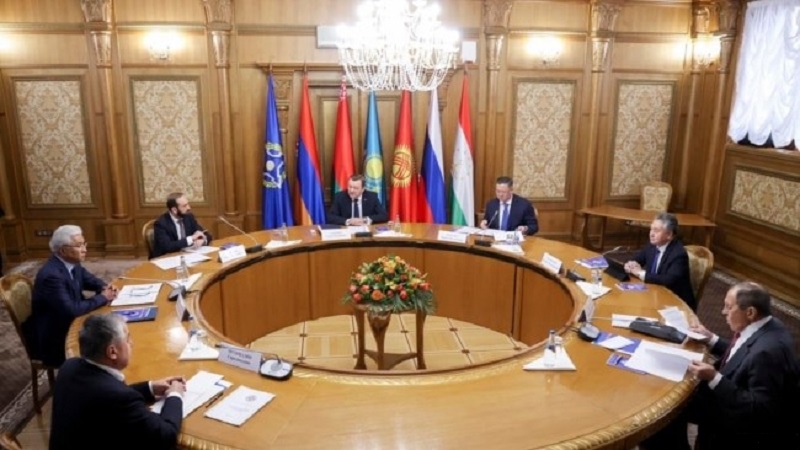Russia and Belarus want to be Armenia's guardians
For Lavrov in the crisis over the Lačin corridor, the U.S. and the EU are only trying to "penetrate the region to harm the legitimate interests of the Russian Federation." While Lukasenko intends to put himself forward as the "noble father" of the Csto, the Eurasian military alliance. Meanwhile, Yerevan returns to denounce the "ethnic cleansing" pursued by Baku.
Minsk (AsiaNews) - At this week's Eurasian military alliance (CSTO) meeting held in Minsk, Russian Foreign Minister Lavrov said that Moscow is not opposed to the intervention of other international mediators in the process of adjusting relations between Armenia and Azerbaijan.
He warned, however, that "in this we must focus on agreements that reflect the balance of interests of the Armenian and Azerbaijani peoples, and the states that represent them."
The head of Russian diplomacy also said that he is not convinced of the sincerity of Westerners in helping the peace process in the Caucasus, and he hopes that "they are aware of this both in Baku and Yerevan, we, however, talk frankly about it."
In his view, the U.S. and the EU are really only trying to "penetrate the region to harm the legitimate interests of the Russian Federation," and to expand the borders of the zones of influence of NATO and EU members.
The eventual international partners, according to Lavrov, should help sign trilateral agreements between Armenia, Azerbaijan and Russia to unblock economic and communication directives between the two conflicting countries, and throughout the South Caucasus, starting from the documents already discussed in previous meetings in Moscow.
In turn, Belarusian President Lukashenko argued that "Armenia's demands to the Csto have their own basis," and they need to be answered non-formally, given the frequent criticism of the alliance for not intervening in real problem-solving. He reminded that "Kyrgyzstan is also asking for help in settling the conflict with Tajikistan, and we cannot continue to accuse each other without doing anything."
Lukašenko intends to put himself forward as the "noble father" of the Csto, taking Armenia under his tutelage along with Russia in assessing military crises. He repeats that "there are always problems, including between Belarus and Russia, but we must have the courage to take situations into our own hands, no matter how complicated they are, otherwise we leave room for the so-called Western advisers." Armenia has been waiting for a clear position from Csto since the meeting last November, when Armenians denounced Azerbaijani aggression in September 2022.
Meanwhile, in Yerevan, Armenian Prime Minister Pašinyan received a delegation led by the chairwoman of the European Parliament's security committee, Frenchwoman Nathalie Loiseau, to emphasize close cooperation with European institutions in supporting Armenian demands for the reopening of the Lačin corridor.
In his opinion, the humanitarian crisis in the border area continues to worsen, as not even food shipments have been allowed to pass through for days, and an international humanitarian mission to verify the situation in the area, as well as to assist in the transit of all transportation necessary for the survival of the Armenian population of Nagorno Karabakh, is considered most appropriate.
Moreover, Pašinyan further states, Azerbaijan "continues with its aggressive rhetoric, and practice of violations of the ceasefire regime, fueling tensions throughout the region." On the occasion of World Refugee Day, the Armenian Foreign Ministry denounced Azerbaijan's policy of "ethnic cleansing," whereby "thousands of Armenians have been forcibly relocated from the Azerbaijani cities of Sumgait, Baku, Kirovabada, and also from areas of Nagorno Karabakh territory that are under Azerbaijani control."







.png)










